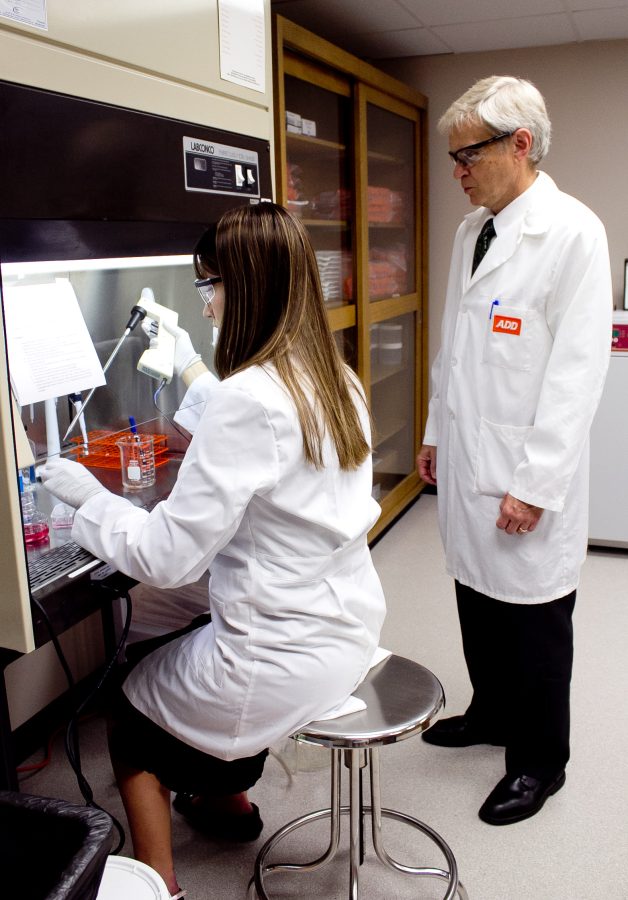Biology majors have a new way to gain research experience under the leadership of BJU’s new cancer research director, Dr. Steve Figard.
Dr. Figard worked in research and development for the diagnostics division of Abbott Laboratories in Chicago for the past 25 years. He now serves as the research director in the cancer research lab on campus.
Dr. Figard is taking over for Dr. Amy Tuck, who served as the interim research director for four years and will now teach full-time as a member of the science faculty.
He was offered the position in 2011 but was unable to accept it until he and his wife, Renee, sold their house in Chicago. In May—almost a year after their house had first been on the market—they sold their house and moved to South Carolina.
Even though Dr. Figard has the flexibility to define the details of his new role, the focus of his job is providing tools and guidance for students to conduct research in the cancer research lab.
The lab was built with resources from the Science and Engineering Endowment Fund, an entity that provides funding for scientific projects at fundamental Christian institutions—particularly BJU. Located in Barge Memorial Hospital, the lab exists to provide real-world research experience to undergrads, specifically biology majors on the cell biology track.
“We hope to provide the optimal academic preparation for undergrads,” said Dr. Mike Gray, chair of the biology department.
Currently, students are working with cancer cell lines, or cancerous tissue, in cell culture. Their purpose is to gather data about cancer cells and substances with anti-carcinogenic properties.
According to Dr. Figard, the research done in the lab is different than typical labs executed in the classroom. Instead of following a set of instructions that produce expected results, work done in the cancer research lab is the real-world application of research.
“It’s one thing to know the amino acids in biochemistry, but it’s another thing to actually know what they are doing in the lab or in a particular protein,” Dr. Figard said.
According to both Dr. Figard and Dr. Gray, one of the goals of the program is to receive funding from the Science and Engineering Endowment Fund that would allow biology students to stay for the summer to solely conduct research in the lab. “It is the ideal capstone experience,” Dr. Gray said.
Dr. Figard wants to challenge students to think logically, scientifically and outside the box. “And if they don’t know an answer to a problem, [I want to] give them the tools so that they can go find the answer,” he said.
Ultimately, Dr. Figard hopes his students will be well-equipped for future jobs both academically and spiritually.
“Competence and character,” he said. “Those are the two things I want to see coming out of this lab—students that have the character and the competence to go out there and be lights for Christ in the scientific community.”























































